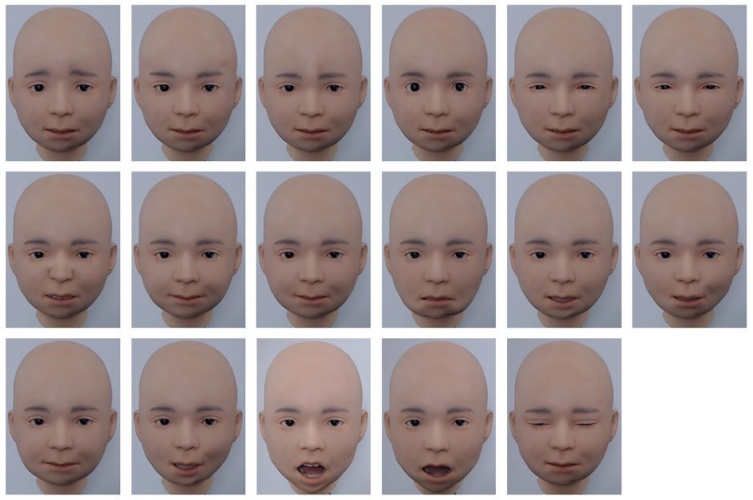Pneumatically actuated Nikola helps with study of emotions
Researchers from the RIKEN Guardian Robot Project in Japan have created Nikola, an android child that demonstrates six basic emotions thanks to a series of pneumatic actuators.

The new study led by Wataru Sato, published in Frontiers in Psychology, tested how well people could identify six facial expressions - happiness, sadness, fear, anger, surprise, and disgust - which were generated by moving artificial muscles in Nikola’s face. According to RIKEN, this is the first time that the quality of android-expressed emotion has been tested and verified for these six emotions.
Inside Nikola’s face are 29 pneumatic actuators that control the movements of artificial muscles. Another six actuators control head and eyeball movements. The pneumatic actuators are controlled by air pressure, which makes the movements silent and smooth.
The team arranged the actuators based on the Facial Action Coding System (FACS), which has been used extensively to study facial expressions. Past research has identified numerous facial actions - such as ‘cheek raiser’ and ‘lip pucker’ - that comprise typical emotions such as happiness or disgust, and the researchers incorporated these action units in Nikola’s design.
Register now to continue reading
Thanks for visiting The Engineer. You’ve now reached your monthly limit of news stories. Register for free to unlock unlimited access to all of our news coverage, as well as premium content including opinion, in-depth features and special reports.
Benefits of registering
-
In-depth insights and coverage of key emerging trends
-
Unrestricted access to special reports throughout the year
-
Daily technology news delivered straight to your inbox










Water Sector Talent Exodus Could Cripple The Sector
Maybe if things are essential for the running of a country and we want to pay a fair price we should be running these utilities on a not for profit...